Who are the most famous French in history?
When you think of famous French people in history, the following come to mind: Napoleon Bonaparte (famous military leader), Joan of Arc (famous French heroine), and Louis XIV (known as France’s most famous king). This article will cover the best known French people throughout history ranging from military leaders, artists, scientists, authors and athletes.

1. Napoleon Bonaparte (1769 – 1821)

Napoleon Bonaparte was a political and military leader that rose to prominence during the period of the French Revolution. Napoleon was born in Corsica, soon after the annexation of the island. Upon serving in the French army, he quickly rose in the ranks.
He was the First Consul (de factor leader) of the French Republic for five years prior to his reign as Emperor when his coronation took place at the Notre-Dame Cathedral. After a long series of successful military campaigns, he lived to the age of 21 before passing away in Saint Helena.
2. Coco Chanel (1883 – 1971)

Coco Chanel (born Gabrielle Bonheur “Coco” Chanel) was a highly reputable businesswoman and fashion designer, known for founding the world renowned Chanel brand. During the era that occurred after World War I, Chanel was credited with popularizing a casual, sporty chic as the standard of style for women.
Serving as a prolific creator, Chanel managed to replace the corseted silhouette that preceded her time with designs that were less time consuming to remove and put on, less expensive, and more comfortable without sacrificing the elegance. She was born in Saumer, Maine-et-Loire prior to spending most of her life in Paris.
3. Louis XIV (1638 – 1715)

The King of France from 1643 until his passing in 1715, Louis XIV’s (also known as the Sun King or Louis the Great) reign was the longest recorded of any monarch in the history of a sovereign nation. His model of France symbolized Europe’s age of absolutism, as he surrounded himself with a vast array of important political, cultural, and military people.
Louis XIV, like his predecessors, continued to work on establishing a centralized state that eliminated feudalism that remained in various parts of France. Consequently, he was able to pacify the aristocrats. Born in the Chateau de Saint-Germain-en-Laye, he ruled the country of France from his majestic palace in Versailles.
4) Marie Antoinette (1755 – 1793)

Marie Antoinette (born Maria Antonia Josepha Johanna) was the last queen of France and wife of Louis XVI before the French Revolution. Marie Antoinette was of Austrian origins and was suspected to have favored Austria, one of France’s biggest enemies at that time.
Known for her lavish spending, rumored promiscuity and alleged illegitimate children, Marie Antoinette was imprisoned and killed by guillotine when the French monarchy fell in 1793.
5. Charles de Gaulle (1890 – 1970)
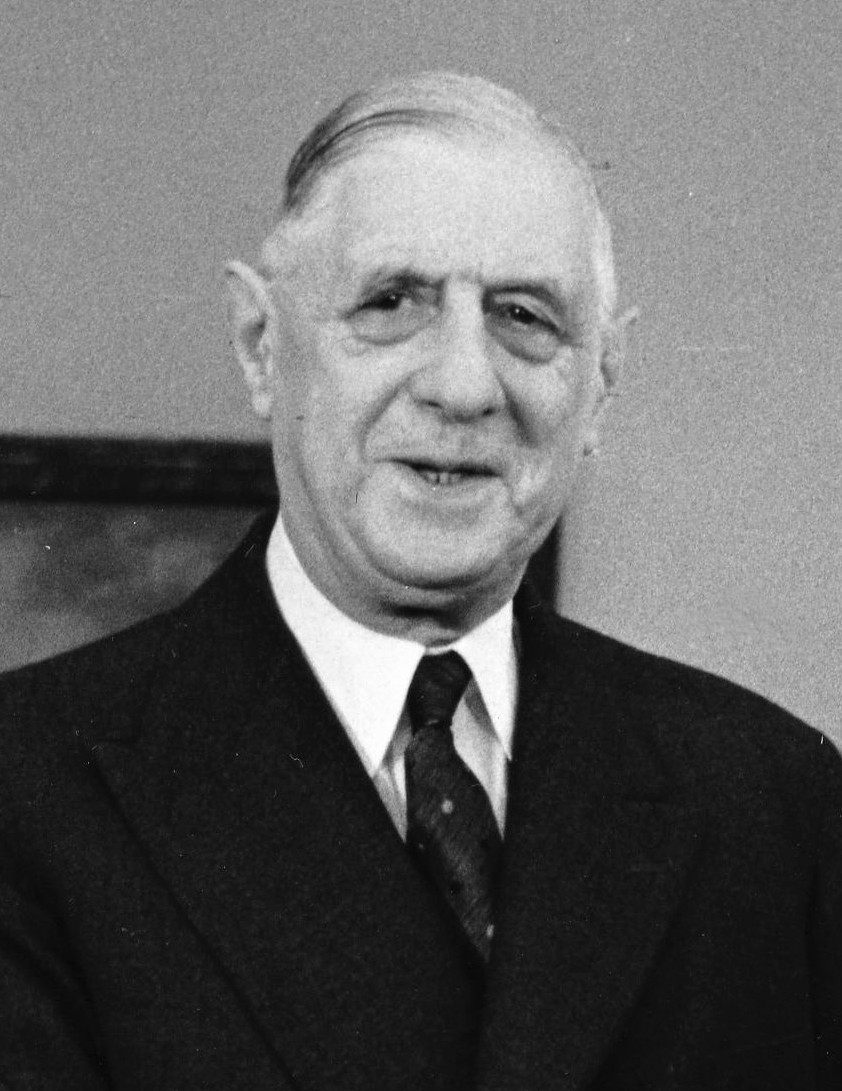
Charles de Gaulle was a statesmen and army officer responsible for leading the French people against the regime of Nazi Germany during World War II, and the chairman of the Provisional Government of the French Republic that worked to restore democracy in the country.
At the behest of the then President of the Council of Ministers, he was convinced to come out of retirement and, in rewriting the Constitution, was responsible for founding the Fifth Republic upon approval via referendum. Later that year, he was elected as the President of France. Born in Lille, his life took him to many destinations. However, he passed away in Colombey-les-Deux-Eglises.
6. Claude Monet (1840 – 1926)

Claude Monet was an innovative painter known for establishing the impressionist genre, an artistic approach observed as modernism’s precursor, particularly in his methods of painting nature on perception alone. Across his career, he was considered the most prolific and consistent practitioner of this philosophy.
Born in Paris, France, Monet grew up in in Le Havre, Normandy which served as the key point for his interest in the outdoors. Extremely successful and frequently exhibited in his lifetime for which he spent most of residing in Giverny, his legacy is a source of inspiration for many aspiring artists.
7. Marie Curie (1867 – 1934)
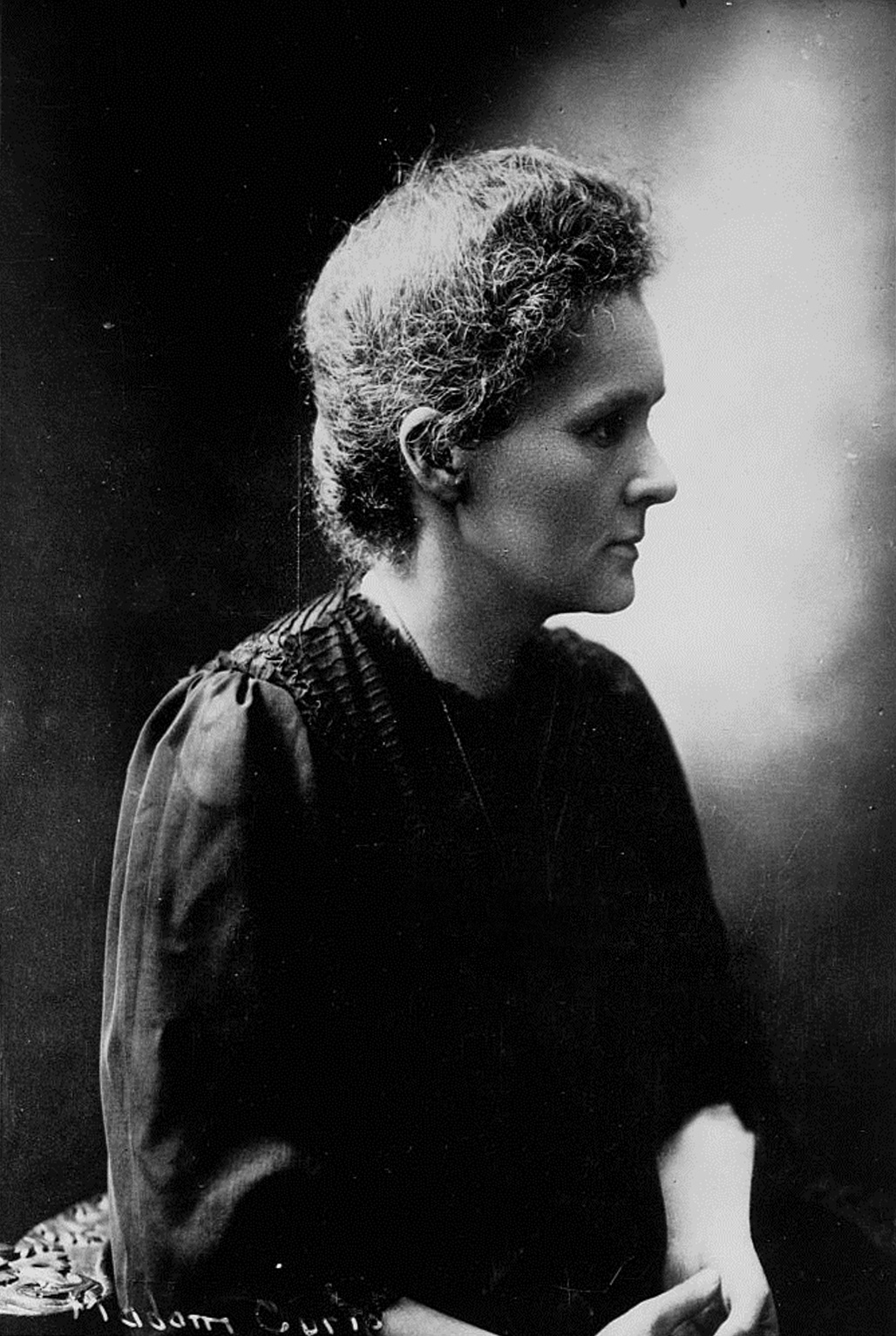
Marie Curie was a chemist and physicist known as a pioneer in the field of research for radioactivity. The first woman to ever be awarded a Nobel Prize in a co-win with her husband, she was also the first woman to ever become a professor for the University of Paris.
Curie was born in Warsaw, Poland, a location that was, at the time, a place that belonged to the Russian Empire. Her greatest achievement lay in the discovery of the elements radium and polonium with techniques invented for the isolation of radioactive isotopes. Upon living to the age of 66, she passed away in Passy, France.
8. Joan of Arc (1412 – 1431)

The self-proclaimed “Joan the Maiden” born in Domremy, Duchy of Bar in the Kingdom of France, Joan of Arc is considered an outstanding French heroine for her pivotal efforts in the Hundred Years’ War, specifically during the Lancastrian phase which repelled the efforts of the English to conquer France. Furthermore, she was christened as a saint by the Roman Catholic Church.
Captured just a year after the war effort, she was burned to death and labeled by English collaborators as a heretic. Her passing occurred in Rouen, Normandy, a territory under the rule of the English at the time.
This post explores a list of movies about Joan of Arc.
9. Victor Hugo (1802 – 1885)

With a literary career spanned over 60 years, Victor Hugo was an influential poet, essayist, dramatist, novelist, and playwright of the Romantic movement. His work was abundant in a wide array of genres including lyrics, epics, epigrams, history, political speeches, diaries, satires, and novels, to name several.
The two most notable works in the history of his writing include 1862’s Les Miserables and 1831’s The Hunchback of Notre-Dame. Born in Bescancon, France and was initially a royalist, his views altered over time and he became a support of republicanism; campaigning for many social causes including the removal of capital punishment.
10. Edith Piaf (1915 – 1963)
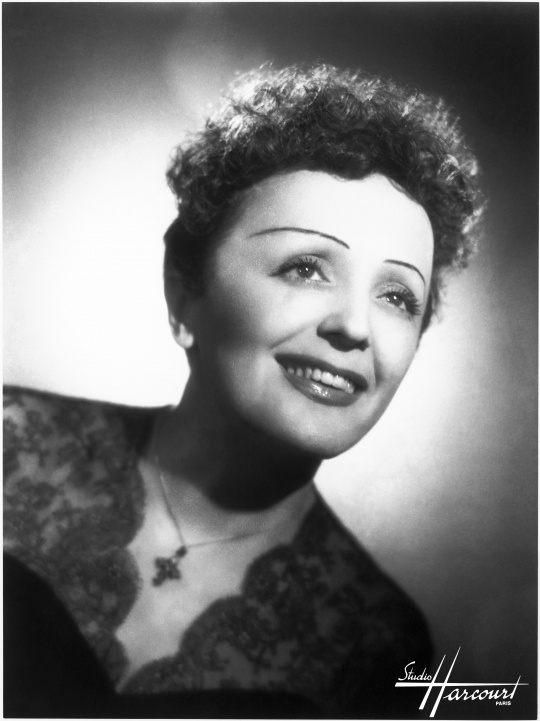
A stunning performer noted as the national singer of France and a renowned international star, the music of Edith Piaf was mostly autobiographical, implementing torch ballads and realistic songs above sorrow, love, and loss. Two of Piaf’s most famous songs included La Vie en Rose and Non, Je Ne Regrette Rien.
Born in Paris, many of her best songs include 1940’s “The Accordionist”, 1949’s “Hymne a l’amor“, and 1951’s “Padam, padam…”. Unfortunately much of her life remains unknown. While popular belief states that she was born in Rue de Belleville, her birth certificate states that she was born at the Hopital Tenon, located in Paris’s 20 arrondissement. She lived to the age of 47 before passing away in Plascassier, a sector of Grasse.
This post explores Edith Piaf’s most famous songs.
11. Gustave Eiffel (1832 – 1923)
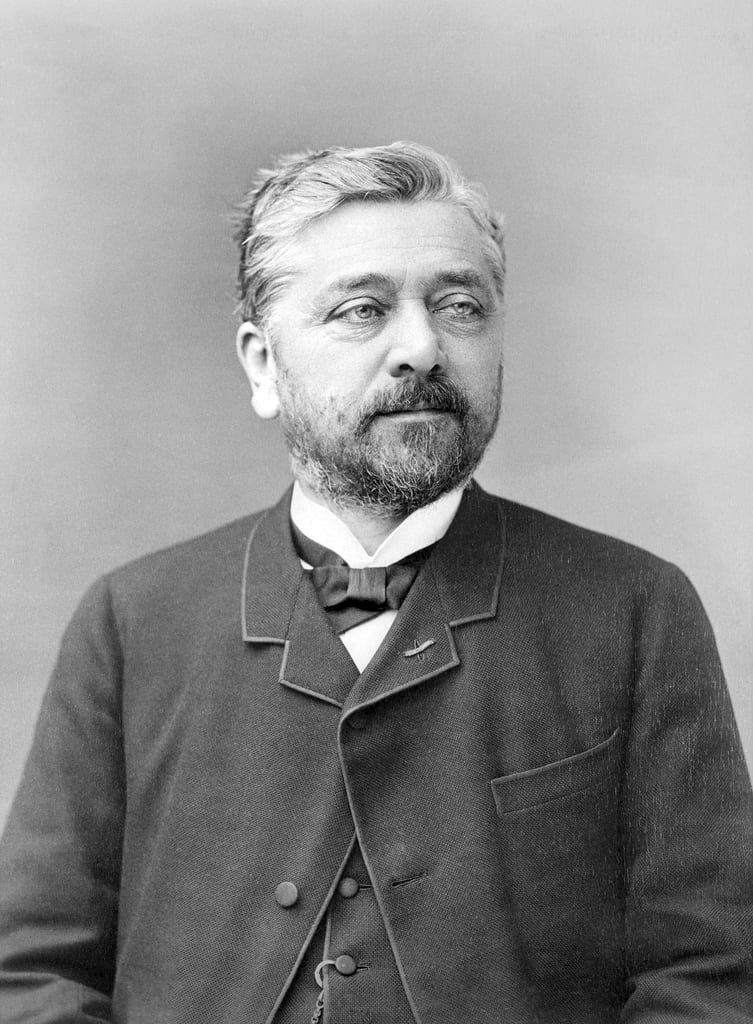
A civil engineer best known for the Eiffel Tower named after him, Gustave Eiffel developed various bridges across the railway network of France, most notably the Garabit viaduct. After he retired from engineering, he focused on researching aerodynamics and meteorology, with significant contributions in each of the fields.
Design plans for the Eiffel Tower were constructed by his company and for the purposes of the 1889 Universal Exposition that took place in Paris. He also contributed to the design of New York’s Statue of Liberty. Born in Cote d’Or, he lived a very long life, passing away as late as 91 in Paris.
12. Voltaire (1694 – 1778)

During the French Enlightenment, Francois-Marie Arouet (nom de plume Voltaire) was a writer, philosopher, and historian best known for criticisms aimed at the Roman Catholic Church and Christianity in general, along with serving as an advocate for freedom of religion, freedom of speech, and the separation of state and church.
A prolific and versatile writer, Voltaire produced works in almost every form, including plays, novels, poems, essays, scientific exploitations, and histories. In total, his writing spanned over 2,000 pamphlets, books, and letters. Similar to Gustave Eiffel, Voltaire lived a long life that mostly took place in Paris.
13. Antoine de Saint-Exupery (1900 – 1944)

A laureate of several of the highest literary awards in France in addition to being a recipient of the United States National Book award, Antoine de Saint-Exupery is mostly remembered for his composure of lyrical aviation such as Night Flight and Wind, Sand, and Stars. Moreover, his best work lay in the novel known as The Little Price.
Prior to World War II, Antoine served as a commercial pilot. When the conflict began, he then joined the French Air Force until the French-German armistice. Upon his demobilization from the Air Force, he moved to the United States in an effort to pursue the federal government to fight against Nazi Germany. Living a short life that originated in Lyon, he passed away at sea in the Mediterranean in occupied French territory at the age of 44.
14. Claude Debussy (1862 – 1918)

Claude Debussy was composer often observed as the first in the impressionist category, despite his rejection of such a term. He stands among the most influential of his kind across the span of the late 19th century and early 20th century.
Born into a modest family with little involvement in popular culture, Debussy demonstrated enough talent to be admitted to the most prestigious musical college in France, the Conservatoire de Paris, where he spent much of his life. Although he originally studied piano, his vocation was found in innovative composition. While it took many years to develop his distinct style, he achieved international recognition for his opera, Pellas et Melisande.
15. Brigitte Bardot (1934 – )

Born and raised in Paris, Brigite Bardot is a former model, singer, and actress who became a prominent animal rights activist. Her portrayals of sexually emancipated characters living lifestyles of hedonism gained her favor as one of the most famous sex symbols of the early 1960s.
Aspiring to become a ballerina early in her life, her acting career began to sprung in 1952. She caught the attention of intellectuals in France for her 1957 role in the film And God Created Woman. Described as a chief locomotive in the history of women, she was considered the most liberated of her kind in post-war France.
16. René Descartes (1596 – 1650)

The inventor of analytic geometry, René Descartes was a masterful scientist, philosopher, and mathematician lay Catholic, whose work managed to link the fields of algebra. Much of his working life was spent in the Dutch Republic, and his modern philosophical efforts were rooted in Aristotelianism.
Despite this, he differed from prior schools of thought on several matters. Firstly, he notably rejected the notion of corporeal substance splitting into form and matter. Next, he rejected the appeals of nature or divinity as final ends when attempting to explain natural phenomena. In his theology, he insists that God’s creation has absolute freedom.
17. Jean-Paul Sartre (1905 – 1980)
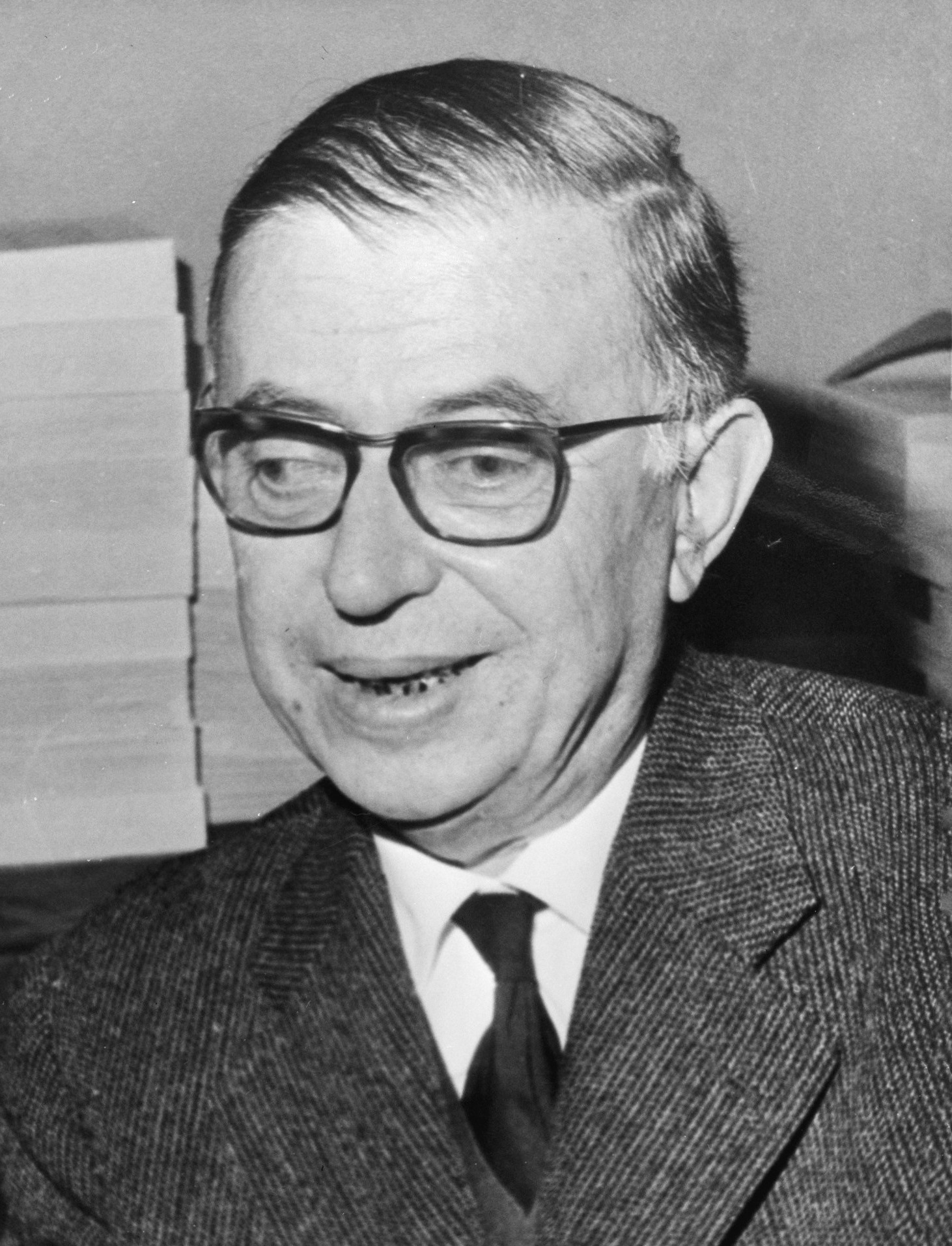
A key figure in the development of existentialist philosophy, Jean-Paul Sartre was also a literary critic, political activist, screenwriter, playwright, biographer, and novelist who led much of the Marxist ideologies.
Nearly all of his work has some influence on sociology, post-colonial theory, critical theory, and literary studies. For literature alone, he was awarded the 1964 Nobel Prize despite attempts to refuse it. Much of what dominated the themes of his work lay within his open relationship with a fellow philosopher Simone de Beauvoir, who together challenged the social and cultural assumptions of their upbringings.
18. Alfred Dreyfus (1859 – 1935)

Alfred Dreyfus was an artillery officer who was trialed and convicted for treason in 1894. With a Jewish ancestry, his story became one of the most polarizing and controversial dramas in the modern history of France, with the incident known as the Dreyfus Affair. Interestingly, it concluded with his exoneration.
He was inspired to join the military after witnessing his family uprooted in the war against Germany, receiving training at the elite Polytechnique school of Paris. He was subsequently commissioned as a sub-lieutenant in the French army. Later, he was made captain. His case remains a notable example of anti-Semitism and miscarriage of justice.
19. Zinedine Zidane (1972 – )
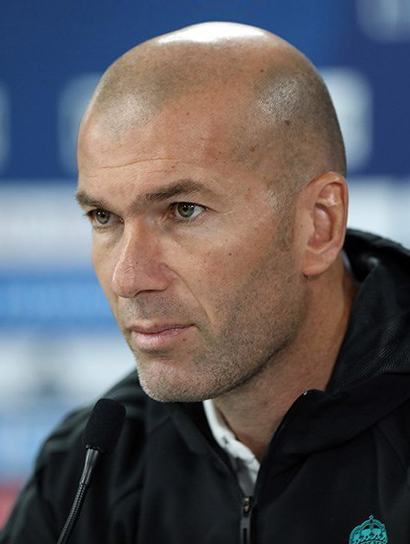
Zinedine Zidane is a former professional footballers who served as a midfield attacker and is one of the more recent coaches of Real Madrid, a Spanish club. Considered one of the greatest players in the history of the sport, Zidane demonstrated elegance for his ability to control the ball as a playmaker.
Born in Marseille, France, he began his career in Cannes prior to establishing himself as one of the greatest players in the Ligue 1 at Bordeux. For his achievements in Spain, he was awarded several trophies, including the UEFA Champions League and a La Liga title, scoring a left-foot volleyed winner that is considered one of the best goals in the history of the competition.
20. Albert Camus (1913 – 1960)

Albert Camus was 1822 – 1895 a journalist, author, and philosopher who became the second youngest recipient to ever be awarded a Nobel Prize in Literature. He was born in French Algeria, Camus’s ideologies focused on anarcho-syndicalism and moralism. Like others, he partook in organizations that sought for an integration of Europe.
His views are observed to have contribute to the rise of absurdism, a body of thought defined by the conflict to seek meaning in life and inherent value and an inability to discover them with certainty. Works include The Rebel, The Stranger, the Myth of Sisyphus, and The Plague.
21. Louis Pasteur (1822 – 1895)

Louis Pasteur was microbiologist and chemist best known for uncovering the principles behind the innovative techniques of vaccination, pasteurization, and fermentation. These remarkable breakthroughs in research led to the understanding of the preventions of diseases as well as their causes which established the foundations of public health, along with hygiene and modern medicine.
Born in Dole, Pasteur is regarded as one of the leading developers of modern bacteriology, with his works credited to saving countless lives through the developments of vaccines for anthrax and rabies. For his time, he lived a long time, passing away at 72 in Marnes-la-Coquette.
22. Jacques Cousteau (1910 – 1997)

Jacques Cousteau was an explorer, naval officer, filmmaker, and conservationist, whos research primarily focused on marine biology. He is known for co-developing the Aqua-Lung, the very first self-contained, open-circuit apparatus that allowed one to breathe underwater, now called a scuba.
Furthermore, his pioneering efforts in marine conservation led to the him serving as part of the Academie Francaise, and his film known as the Silent World won a Palme d’Or in 1956 at the Cannes Film Festival. Prior to Michael Moore, he was the only person to win this award for a film in the documentary category. Born in Saint-Andre-de-Cubzac, he lived to the age of 87 before passing away in Paris.
23. Maximilien Robespierre (1758 – 1794)
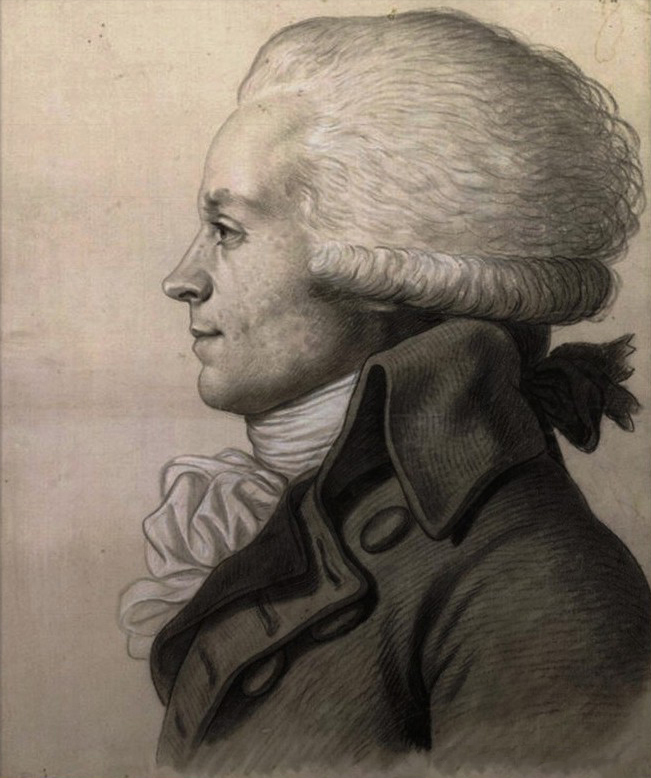
Maximilien Robespierre was a statesmen and lawyer who was the most influential figure of the French Revolution, comparable only to Napoleon I. As a member of the Jacobin Club and Constituent Assembly, he championed the idea of universal manhood suffrage along with the total abolition of slavery and clergy celibacy.
Elected as a public accuser, he was an outspoken advocate for the male citizenry who did not possess a political voice, for their unrestricted admissions to public offices and the National Guard, for the right to bear arms and the right to petition. He campaigned for an indivisible France, with equality before the law, and a chief defender of direct democracy. Born in Arras, he was executed by guillotine in ceremonial fashion in Paris.
24. Catherine Deneuve (1943 – )

Catherine Deneuve is an actress, model, and singer. Born in Paris, she is considered one of the greatest French actresses of all time. Deneuve gained international recognition for her portrayal of aloof, mysterious, icy beauties in a number of performances, succeeding Mireille Mathieu as the official face of the country’s national symbol of liberty.
Nominated 14 times for the Cesar Award, she secured victories for performances in The Last Metro along with Indochine.
25. Charlemagne (747 – 814)

Living as part of the Carolingian Dynasty, Charlemagne was the King of Franks, the King of Lombards, and Rome’s first Holy Emperor. He succeeded in uniting most of central and western Europe, and was canonized by Antipope Paschal III. Today, the Catholic Church considers him beatified, a progressive step towards sainthood.
Also commonly referred to as the Father of Europe, he united the majority of the western continent for the first time since the Roman Empire’s classical era, consolidating parts of Europe that had never been under the rule of the Franks or Romans. Unfortunately, he was not viewed in his esteem by the Eastern Orthodox Church as a result of his support of the filioque.
26. Andre The Giant (1946 – 1993)

A professional actor and wrestler, Andre The Giant (born André René Roussimoff) lived to be over seven feet tall as a byproduct of gigantism from the excess growth hormone known as acromegaly. Famously, his career achievements and physical stature led him to being referred as the “Eighth Wonder of the World”.
Born in Coulommiers and dying in France, Roussimoff was signed into the World Wide Wrestling Federation (WWE) by the renowned Vincent J. McMahon as a special attraction across the United States and Japan.
More posts by Dan Forsythe

